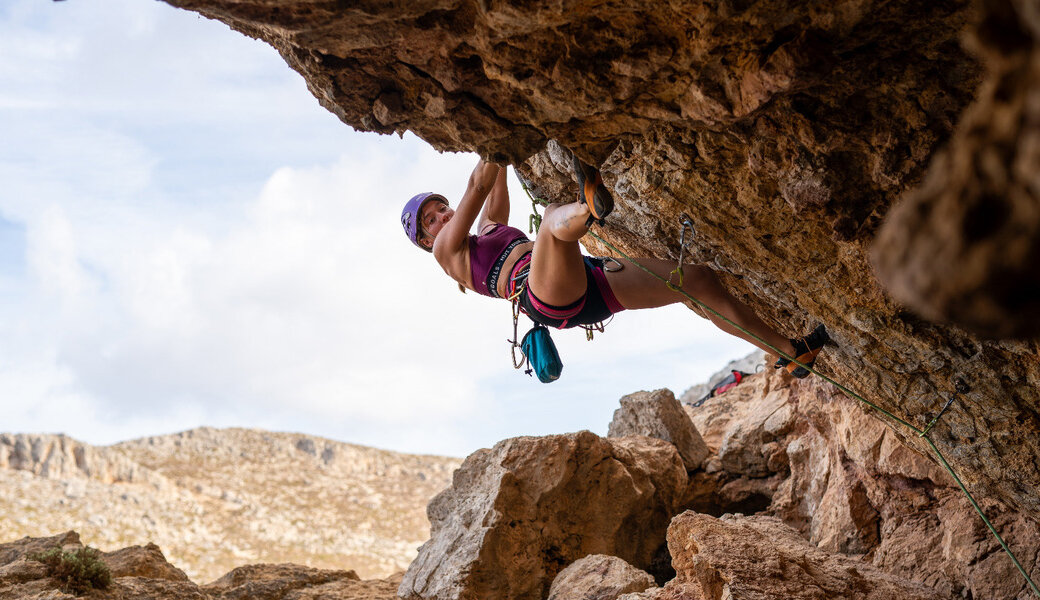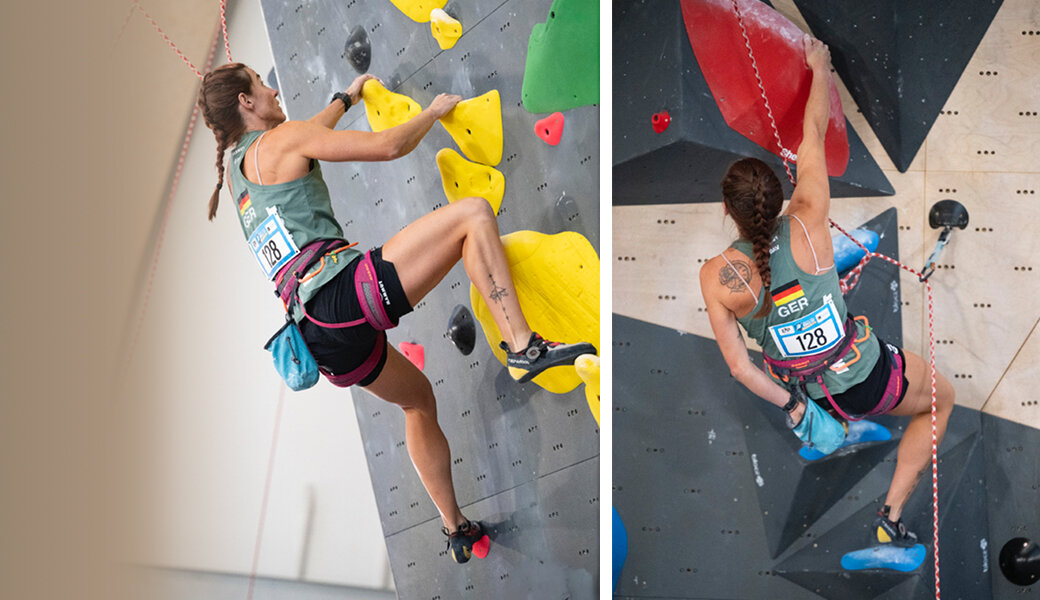Do you have a strict training schedule for when and how you train throughout the year?
Kind of – I focus on the basics and specific strength training during the winter to improve my overall climbing performance. In spring, I try to visit as many gyms as possible and work on my onsight level. Between competitions, I focus on addressing weaknesses, while in summer I spend as much time outdoors as I can. Being outside helps me relax, recharge, and regain focus for the next competition.
My routine also includes daily mobility work, a solid amount of cardio, and compensatory training to keep my body balanced and resilient.
What advice can you give to somebody looking to improve their training routine?
Consistency and fun – the best training schedule won’t work if there’s no joy in it. Staying consistent is important, but enjoying the process is what truly keeps you going.
What do you think of indoor climbing gyms in relation to climbing on actual rock?
I’ve never been overly passionate about sport climbing outdoors, but it offers a different perspective on climbing, and I believe everyone should include it from time to time. There are a few places I truly enjoy climbing outside, but for me, training primarily happens in the climbing gym.
Are you able to do a one-arm pull-up? How about a single finger?
Not yet – working on it (both).
How much of the success as a pro climber is due to show and how much due to actual climbing skill?
Strength and skill are crucial and should never be neglected. But to handle the audience and the publicity during competitions, you also need a certain ability to engage with the media. Nowadays, the “show” aspect is becoming more and more important.
So yes – you need both. Still, I hope the focus will always remain on the actual skill and performance of the climber.



